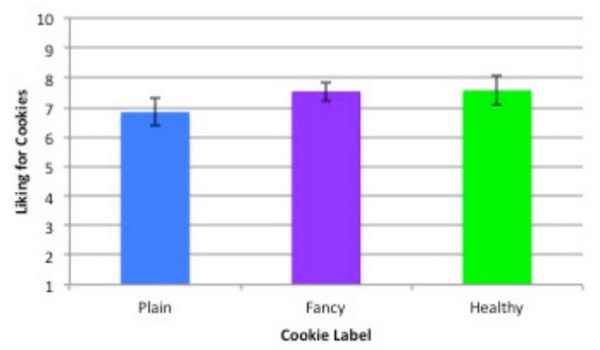
Previous studies have found that how a food item is labeled may influence people's liking of it. This study used a cookie taste test to investigate whether people's liking of a dessert item would be swayed by the use of different labels.
Read More...
